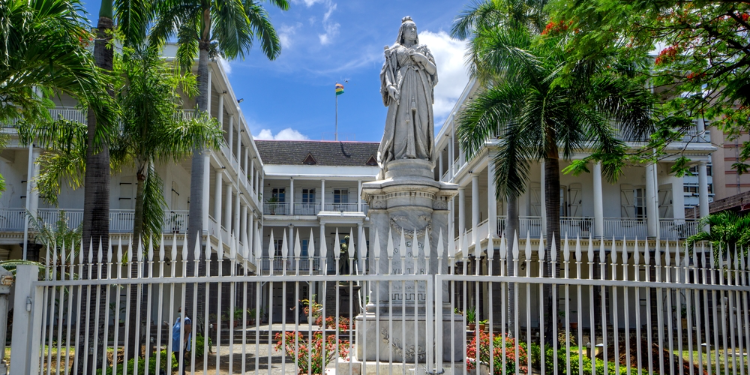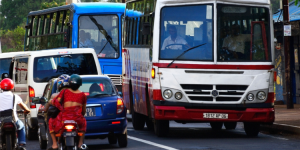
In a landmark election that will go down in the annals of Mauritius' political history, the Alliance du Changement achieved an overwhelming victory, the likes of which hadn't been seen in over two decades. With a record-breaking turnout of 79.3%, where 795,243 of the more than one million registered voters cast their ballots, this election showcased a significant mobilization of the electorate.
A historic "60-Zero"
In a significant blow to the outgoing Prime Minister Pravind Jugnauth's Alliance Lepep, which secured only 27.8% of the votes, the Alliance du Changement triumphed in the pivotal constituency of Pamplemousses/Triolet—a stronghold for Ramgoolam and a key electoral indicator. This result is seen as a resounding public endorsement, reminiscent of the "60-zero" victory achieved by the MMM-MSM alliance in the 2000 elections.
This "60-zero" victory for the Change Alliance has effectively left Parliament without any opposition, a rare occurrence where a single political bloc dominates all legislative power. To mitigate this, the Electoral Commission appointed four "best losers" from the voting population, increasing the total number of deputies to 64. This mechanism was designed to rectify the underrepresentation of certain demographics and to ensure a minimal presence of opposition in the National Assembly despite the direct vote rout of other alliances.
Political and institutional changes
The political upheaval in Mauritius has precipitated a significant institutional shockwave. A series of resignations among high-ranking officials, including the notable departure of Police Commissioner Anil Kumar Dip, highlights the deep ramifications of this turmoil.
Key figures
- Turnout: 79.3%;
- Alliance du Changement: 62.5%;
- Alliance Lepep: 27.8%;
- Linion Reform: 5.1%;
- Muvman Bruneau Laurette: 1.4%.
Priorities of the new government
The new government, as outlined in the Alliance du Changement's manifesto, has established 25 major priorities aimed at addressing a spectrum of economic, social, and environmental challenges. Key initiatives include:
- Priority fight against inflation: Creation of a 10 billion rupee fund to stabilize the prices of essential goods and alleviate the burden on families.
- Introduction of a new economic model: Focused on a master plan for the green economy, new technologies, and the ocean economy.
- Commitment to increase social pensions by gradually raising the old age, disability, and other social pensions to a minimum of Rs 21,500.
- Decreasing the prices of gasoline and diesel, reorganizing the Central Electricity Board (CEB) to reduce electricity fees, and free internet access for each family.
- Free public transport for all, Including school vans; overhaul and modernization of the bus industry for a more effective, reliable, and safe service.
- Reduction in medication costs and vouchers for purchasing medications not available in public health centers.
- Zero income tax for annual incomes below Rs 1 million, on basic retirement and disability pensions, and tax exemption for 18-28 year-olds.
- One-time registration fee for purchasing a new vehicle.
- Major electoral reform to ensure a minimum of one-third female representation on candidate lists for general elections, transparent legislation on party funding, anti-defection law, and the introduction of the Freedom of Information Act.
- Implementation of zero waste solutions by reducing the landfilling of household waste and enhancing waste valorization through composting, recycling, energy recovery, and secure treatment of medical waste to eliminate biological hazards.
These measures are designed to restructure key institutions and enhance the quality of life for Mauritians across various sectors.
International perspective
The political transition in Mauritius has garnered significant attention from regional and international stakeholders. Institutions such as the World Bank and the International Monetary Fund (IMF) are particularly focused on the new government's plans to implement a Rs 10 billion stabilization fund. This economic strategy, aimed at controlling inflation, may set a precedent for similar policies in other island economies.
Meanwhile, China, which has made substantial investments in Mauritian infrastructure in recent years, is keenly observing the political developments. As Mauritius begins a new chapter in its political history, its reputation as a stable model in the Indian Ocean region remains a critical point of interest for its international partners.
Challenges of this transition
The initial 100 days of the Ramgoolam government are pivotal, marked by high expectations for:
- Swift implementation of economic measures;
- Comprehensive reorganization of public institutions;
- Initiation of promised structural reforms.
The "historic mandate" of 60-0 bestows strong legitimacy on the new government, coupled with an extraordinary level of responsibility. Mauritius is on the brink of a new era in its political history, with critical developments expected in the forthcoming weeks.



















